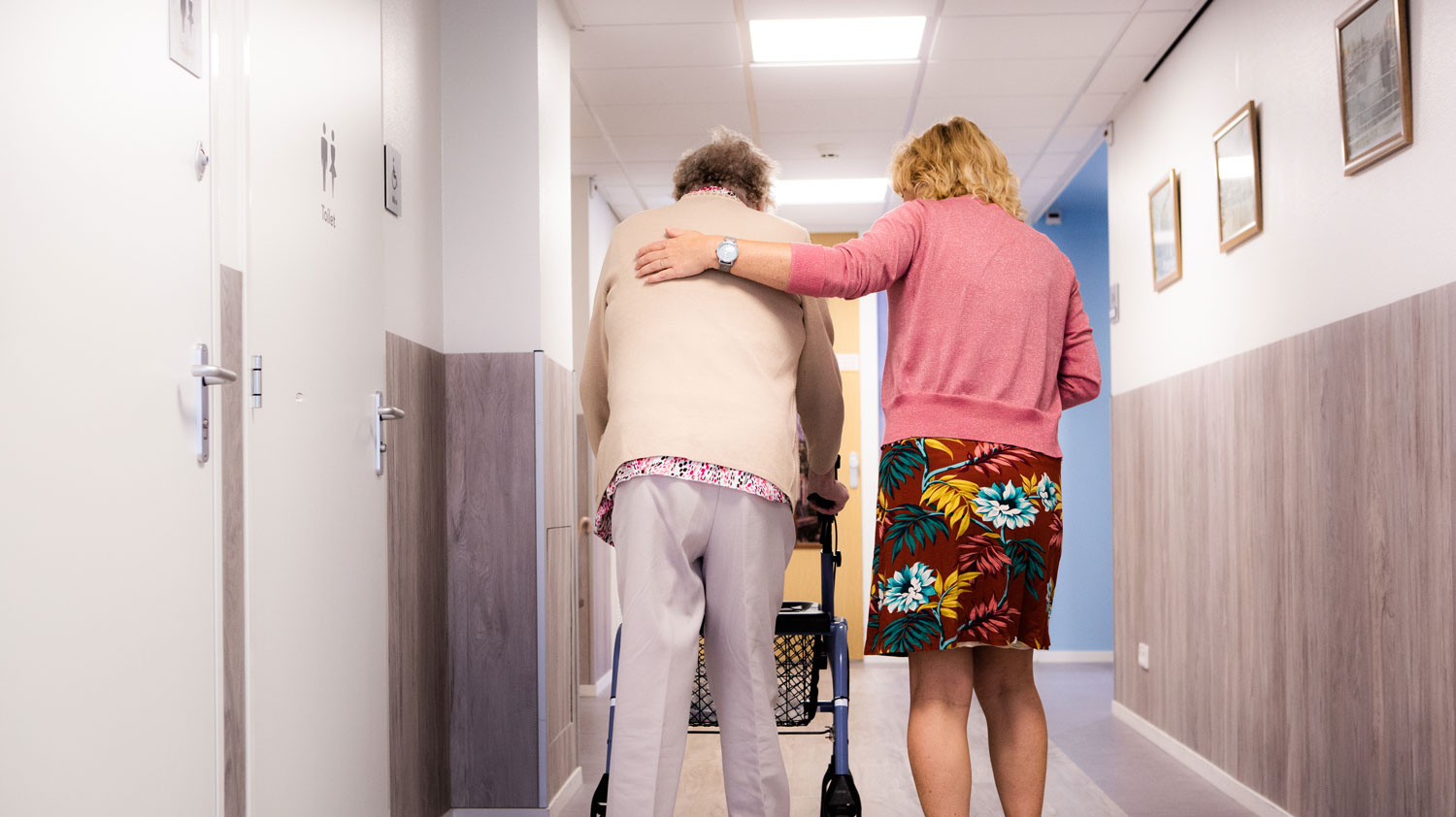Current research
Optimizing the living environment for people with Korsakoff syndrome
The objective of this study is to explore how the living arrangement and living environment of people with Korsakoff syndrome can be optimized, so they experience as much independence and quality of life as possible.
Read moreRELOCARE
Relocation of nursing home residents within or between nursing homes occurs for a variety of reasons, ranging from changing healthcare needs to closing down of care facilities. These care transitions between or within nursing homes can negatively impact the health and well-being of the nursing home residents in many ways, varying from experiencing stress and anxiety to developing depressive disorders. In order to prevent, mitigate, or eliminate these negative consequences, it is important to identify, review, and develop transition interventions that contribute to successful and effective care transitions between or within nursing homes.
Read more‘Hartelijk Welkom! (A warm Welcome!)’
Improving the nursing home admission process for people with dementia and their informal caregiver.
Read moreINTERACTION
This project aims to optimize interprofessional collaboration (IPC) in long-term care (LTC) and geriatric rehabilitation (GR).
Read moreEU-COGER: European cooperation in geriatric rehabilitation research after COVID-19
The EU-COGER study is a European observational multicentre study on the treatment and recovery of post-COVID-19 patients in geriatric rehabilitation.
Read moreMeasuring in geriatric rehabilitation: gain insight into problems of clients using the COPM interview
Occupational therapists can use the Canadian Occupational Performance Measure (COPM) to inventory problems experienced by the patient (semi-structured interview) to set goals and evaluate treatment. A description of measurement properties of the COPM for people in geriatric rehabilitation was produced by performing a systematic literature review. Next, a clinimetric study was conducted to gain a better understanding of interrater agreement and reliability in geriatric rehabilitation.
Read moreCREATE study (Challenging REhAbiliTation Environment)
This study aims to conceptualize the term challenging rehabilitation environment (CRE) and to develop a measuring tool for this environment.
Read moreCompleted research
Measuring in geriatric rehabilitation: the Utrecht Scale for Evaluation of Rehabilitation (USER) to measure physical and cognitive functioning
The Utrecht Scale for Evaluation of Rehabilitation (USER) is a multi-domain measurement for measuring physical functioning (PF) and cognitive functioning (CF) in geriatric rehabilitation (GR). Until recently, the measurement properties for patients in geriatric rehabilitation were unclear. To gain insight into these properties, researchers and care organizations form the academic networks UNC-ZH and UNO Amsterdam undertook a series of studies.
Read moreCOVID-19 MINUTES study
What happened to the nursing homes? What issues and potential fixes were brought up in COVID-19 outbreak teams? With the COVID-19 MINUTES study we closely followed nursing homes during the pandemic. Study about COVID-19-related measures and problems in nursing homes.
Read moreSupporting family caregivers during and following their loved one’s illness and death
Development and implementation of a guide for professional caregivers to support family caregivers of loved ones with a life-limiting condition or frailty
Read moreGetting pain recognized and treated
Implementation of the multidisciplinary guideline on chronic pain in vulnerable nursing home residents to improve recognition and treatment.
Read more
